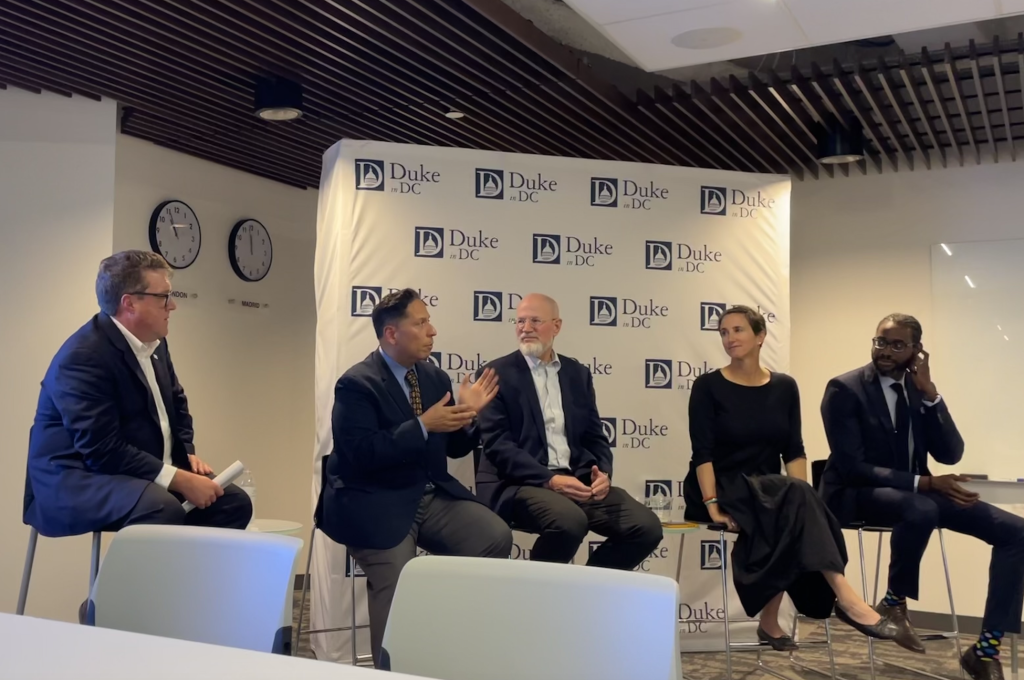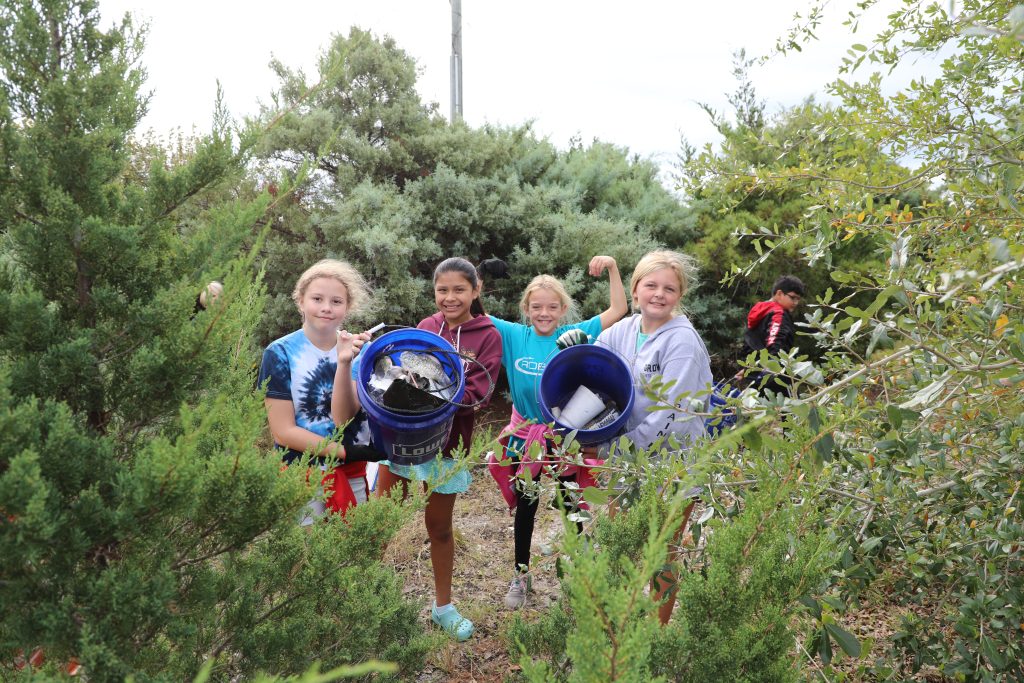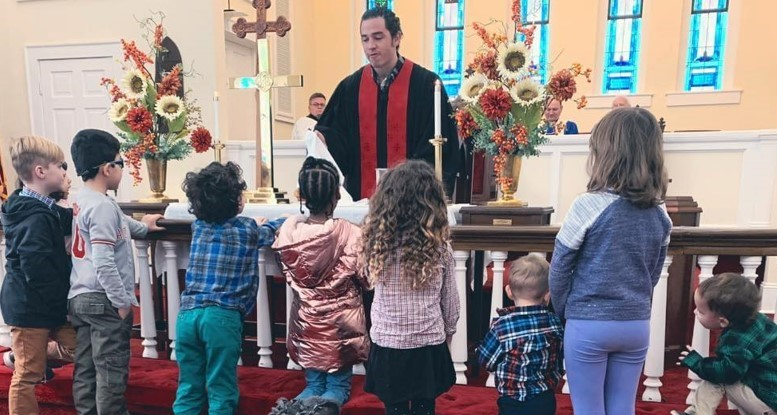Duke in DC’s New Event Series Highlights How Duke Faculty, Students and Staff are Making a Difference in Their Local Communities

For Liz DeMattia, Duke’s work to improve communities across North Carolina is about empowering them.
“I think the common theme … is agency,” said DeMattia, director of the Community Science Initiative at the Duke Marine Lab. “When you hear the negative and don’t have the agency, it can be depressing.”
In Beaufort, North Carolina, DeMattia creates K-12 curricula on marine debris, water quality, restoration and drones for the Community Science Initiative at the Duke Marine Lab (DUML). Researchers there work with local teachers and community members to engage elementary students with experiential learning based on local ecosystems.

“Talking about hope and working towards restoration,” she said, “our faculty can work actively on restoration with students, local agencies and local schools.”
That effort is one of many Duke-led programs currently serving North Carolinians nationwide.
DeMattia joined Vincent Guilamo-Ramos, dean of the Duke School of Nursing; Brad Thie, director of the Duke University Divinity School Thriving Rural Communities Initiative; and Aaron Kyle, professor of the practice in the Department of Biomedical Engineering at Duke’s Pratt School of Engineering for the Duke Office of Government Relations’ new salon series, NC in DC. The discussion took place at the Duke in DC office on March 15.
With a focus on Duke’s engagement and workforce training across the state, the inaugural event of the series hosted a select group of D.C.-based policy and business leaders, including staff from the North Carolina delegation and NC-based companies. Chris Simmons, the interim vice president for Public Affairs and Government Relations at Duke, moderated. Duke State Relations and Duke Health Government Relations cosponsored the event.
Across all disciplines and geographies, Duke plays a pivotal role in workforce training and education throughout the state.
Like DeMattia, one of Kyle’s primary goals is empowering students to solve big problems and overcome their own. He is currently adapting his summer engineering design camps to Durham. His Outreach Design Education Program, supported by a National Institutes of Health (NIH) Science Education Partnership Award (SEPA), introduces grades 6-12 students, particularly underrepresented minority or economically disadvantaged students, to STEM concepts through biomedical engineering design projects. Kyle is also bringing local high school teachers through the program to help them learn how to incorporate engineering design into their curriculums.
Before joining Duke, Kyle led summer design camps for New York City high school students, allowing students from the local community to enter university workspaces and build biomedical devices. He helps students identify challenging engineering problems to solve while “empowering students to look at the world, develop skills and their identity… so that as they run into difficulties, they will persist in STEM.”
Dean Ramos spoke of the Duke School of Nursing’s (DUSON) priority to “serve as a thought leader and an agent of change” by addressing health inequities in rural and underserved populations in North Carolina.
DUSON recently received a $3.9 million award from the Health Resources and Services Administration (HRSA) to deliver nurse-led models of care in North Carolina communities. Ramos explained the importance of building trust in rural North Carolina communities, “rather than mitigate [mistrust], we are trying to bolster trustworthiness.”
DUSON’s collaborations with Historically Black Colleges and Universities, Hispanic-Serving Institutions and community colleges in the region – including the Watts School of Nursing and Durham Technical Community College – also create stronger and more lasting outcomes for the community.
“Our students and alumni are serving in local communities from Murphy to Manteo.”
Brad thie, director of the thriving rural communities initiative

That region-wide approach is also manifest in the Divinity School’s Thriving Rural Communities Initiative led by Thie. The initiative cultivates Christian leadership and congregations in rural North Carolina while preparing students for effective ministry in these areas.
“Our students and alumni,” Thie said, “are serving in local communities from Murphy to Manteo.”
